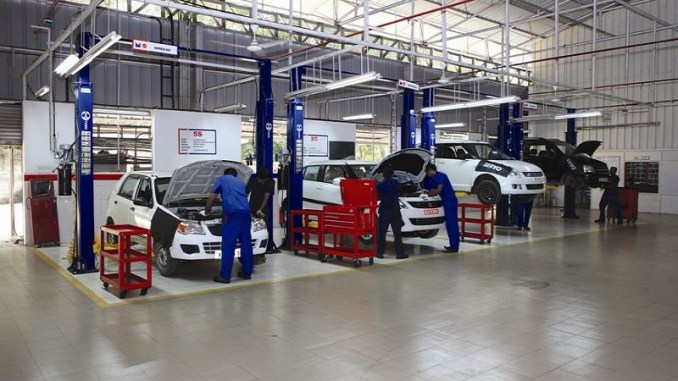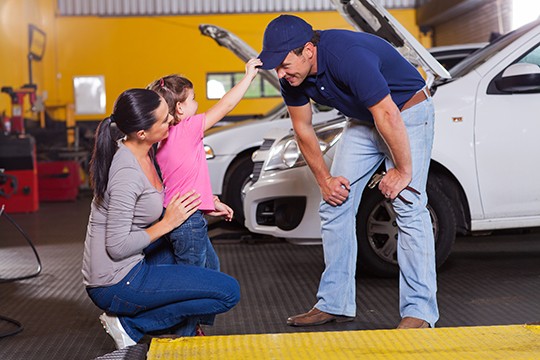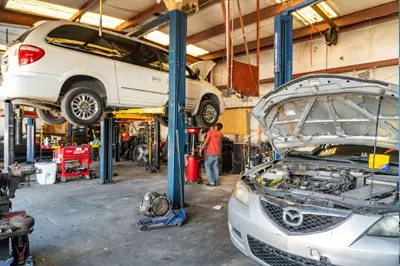All Categories
Featured

When it involves lorry upkeep, the brakes are arguably the most crucial system for guaranteeing your security. Your brakes have to operate efficiently to avoid crashes and react swiftly in emergency situations. Routine brake evaluations are vital to keeping your braking system in leading problem. Recognizing when and how to examine your brakes can save you from harmful situations and expensive repair work in the future. Right here's an overview to aid you stay on top of brake assessments.
- Why Brake Assessments Are Important. Brakes are made to wear down with time, but without regular assessments, you might not discover when they end up being less effective. A malfunctioning brake system can lead to serious accidents, boosted repair work expenses, and even the demand to change other lorry parts.
Brake evaluations not only assist you capture prospective problems before they intensify, yet they also enable for far better braking performance, increased lorry life expectancy, and improved safety.
- Acknowledging Indication for Brake Issues. While regular inspections are very important, you do not have to wait up until your auto's next visit to the mechanic. Expect these caution indicators that may indicate it's time for an assessment:
Uncommon Sounds: A shrill squeal or grinding sound when applying the brakes frequently signals that the brake pads are worn down or harmed. Soft or Mushy Brake Pedal: If the brake pedal really feels soft or spongy when pushed, there might be air or moisture in the brake lines, or the brake fluid might be low. Pulling away: If the car draws away while braking, it could show uneven brake pad wear or a hydraulic issue in the brake system. Resonance in the Guiding Wheel or Pedal: If you experience resonance or pulsation when stopping, it may be an indication of warped blades or uneven brake pad wear. Raised Stopping Range: If it takes longer than usual to bring your vehicle to a stop, it might be time to check the brake pads, liquid degrees, or blades. If you observe any one of these indicators, it's best to have your brakes inspected instantly by a specialist.
- Trick Elements Checked During a Brake Evaluation. Throughout a brake assessment, a licensed mechanic will certainly examine numerous essential components of the brake system to ensure they're working appropriately. Several of one of the most integral parts to inspect consist of:
Brake Pads: These are the friction product that presses against the brake rotor to slow down the vehicle. Gradually, the brake pads use down and require replacing. Brake Rotors: Blades are the metal discs that the brake pads clamp down on. They ought to be smooth and devoid of deep grooves or cracks. Brake Liquid: The brake liquid transfers the pressure from the pedal to the brakes. Low fluid levels or old, infected fluid can lead to poor braking performance. Brake Lines: Brake lines lug fluid from the master cylinder to the brake parts. They should be inspected for leaks, fractures, or damage. Brake Calipers: These secure the brake pads onto the rotors. They should be in great working order and without leakages. Frequently inspecting these components ensures your stopping system works efficiently and helps you avoid unsafe driving scenarios.
- Just how Frequently Should You Get Your Brakes Evaluated? The regularity of brake examinations relies on your driving behaviors and the sort of vehicle you have. As a general standard, it's advised to check your brakes a minimum of annually or every 12,000 miles. Nevertheless, if you drive in hefty web traffic, frequently bring hefty lots, or drive on sloping terrain, more frequent assessments might be needed.
It's likewise a good idea to have your brakes inspected if you discover any of the indication stated earlier, as this can avoid much more significant problems.
- The Expense of Ignoring Brake Inspections. Disregarding routine brake assessments can cause severe repercussions. Worn brake pads, damaged rotors, or low brake fluid can trigger your braking system to stop working when you need it most. Along with the security threats, neglecting brake maintenance can lead to pricey fixings later on.
For example, if the brake pads are not changed in time, the damages might extend to the rotors, leading to the need for rotor substitute-- an expensive repair service. By scheduling routine brake examinations, you can prevent these costly repair services and keep your stopping system in good problem for longer.

- What Happens Throughout a Brake Inspection? An expert auto mechanic will certainly perform a thorough inspection of your car's braking system, consisting of looking for the adhering to:
Brake Pad Thickness: Brake pads require to be replaced when they have put on down to a certain thickness. Rotor Condition: The auto mechanic will certainly check the blades for signs of wear, bending, or scoring. Brake Liquid Level: Low brake fluid can influence stopping efficiency. The mechanic will inspect the liquid level and restore it if needed. Brake Line Honesty: The brake lines will certainly be examined for any leakages or cracks that might compromise the brake system. When the assessment is complete, the mechanic will educate you of any needed repair services or substitutes.
Conclusion: Keep Safe with Routine Brake Inspections. Your brakes are vital to keeping you and your passengers safe when driving, so regular brake inspections must never ever be overlooked. By taking notice of warning indicators, scheduling periodic brake checks, and dealing with issues promptly, you can make sure that your brakes are constantly in top form.
Don't wait till your brakes stop working-- remain proactive regarding brake upkeep. A small financial investment in brake assessments today can conserve you from pricey repairs and harmful situations in the future.
Latest Posts
Find the Top Auto Repair Deals in Montclare, Chicago
Trustworthy Overhead Door Solutions for Houses and Businesses
Improve Your Residential Property with Overhead Door Systems
